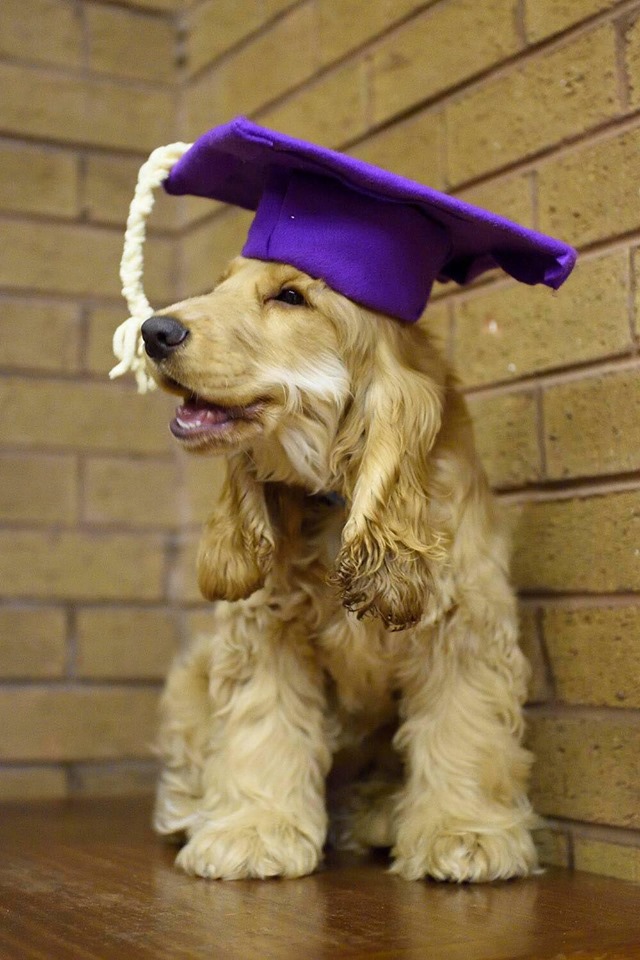Anxiety in Dogs
- Teaching Tails

- May 3, 2023
- 3 min read

The first week of May is Dog Anxiety Awareness week, so there is no better time to chat with you about the well-being of your canine companion.
What are the signs?
We can all recognize anxiety in dogs such as hiding and shaking. However, here is a list of behaviours that are surprising signs of canine anxiety.
pacing/restlessness
panting
excessive barking
urination in the house
self-harm through excessive chewing or licking
destructive chewing
lose of appetite
sudden reactive behaviour
What are the causes of anxiety in dogs?
Health - anxiety resulting from sickness or ongoing pain. If your dog suddenly starts showing any of the above behaviours, you must contact a vet immediately to rule out any illness or injury. No amount of training will help if your dog has an underlying medical condition.
Fear - there can be so many triggers, vets, fireworks, thunder, people, dogs, cars, etc. Recognizing your dog's fears is the first step to helping their anxiety. Working closely with a trainer to build your dog's confidence around their triggers will help your dog live a more fulfilled life.
Lifestyle - so many dogs are stressed and anxious because their needs are not being met.
Dogs need a healthy diet, exercise, mental stimulation, and opportunities to sniff, lick and chew. They need training, companionship, and most of all they need to feel safe.
Separation Anxiety - post covid more and more dogs are struggling with alone time. More people work from home than ever before it is important that you teach a dog that being alone is nothing to worry about. If you are struggling with separation anxiety professional separation trainer or qualified canine behaviourist can help.
Age-Related - some adolescent dogs will become more fearful and anxious due to hormonal changes and a reorganisation of the brain during puberty. They become more motivated to explore and may be unable to listen to their owner's cues. This age group is also in the prime of their youth, they have more energy and will require longer walks. Not meeting these needs may cause stress and anxiety resulting in a possible onset of destructive behaviours in an attempt to get rid of energy and frustration. Adolescent dogs, unfortunately, find themselves in shelters around the world because unsuspecting owners think their puppy has completely lost the plot. What is important here is to acknowledge that this stage will pass they just need your patience, understanding, and continued training.
Older Dogs - if your senior dog displays any of the above behaviours please notify your vet immediately, your dog is likely to be suffering from age-related pain or illness. Many fear-related anxieties may become more pronounced or begin as your dog ages.
Genetics - just like humans some dogs are genetically more predisposed to being anxious.
How can we help?
Most importantly do not punish them! As you have read many of the signs of anxiety are unwanted behaviours for owners like destructive chewing, unwanted barking, urinating in the house, and possible reactive responses. I fully understand why these behaviours would cause an owner stress but punishing your dog for having emotions is unethical. Using punishment for any of these behaviours will only suppress the unwanted behaviour not fix the underlying cause. We need to use desensitisation and counter-conditioning to change how our dogs feel around things that cause them stress.
Those of us who live with anxiety know that the uncertainty of what is ahead can lead to more fear and anxiety. Therefore adding a little structure to your dog's daily life can really help them deal with their anxiety. Ensure you are meeting their needs by scheduling time each day for walking, playing, training, resting and just being together.
Limit their exposure to the things that upset them the most. If you walk a reactive dog who is barking at everything they see, give them a break, change the route, or drive them somewhere quieter. I recognize that owners carry on walking reactive dogs because they fully understand the importance of exercise for the dog, but ask yourself who is enjoying it? I know you're not. I also know your dog wishes you know they don't either.
Learn new things. Training tricks, doing scent work, and taking part in a dog sport will help build your dog's confidence as well they will increase the bond between you.
Make them feel SAFE! We need to advocate for them in all situations, especially the ones that scare them the most. Building confidence and changing behaviour in a dog that does not feel safe with you will be impossible.
ASK FOR HELP! Being the guardian of an anxious dog is difficult and can be really overwhelming at times. While recognizing signs of anxiety in dogs is important, it is equally important to stress the need for professional help from a veterinarian or trainer to address a dog's anxiety so we can help them live a more stress-free life.



Comments